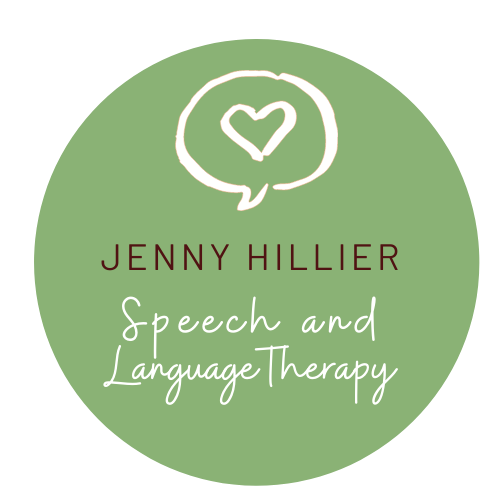
Communication Milestones: Birth to 4 years
Milestones at Birth to 3 months
- Will startle to sounds
- Begins to smile
- Lots of cooing
Milestones at 4 to 6 months
- Turn to sounds
- Begins to pay attention to music
- Continues cooing but will also begin to babble (babble is more speech-like with consonant and vowel combinations e.g. bababa, puhpuhpuh)
Milestones at 7 to 12 months
- Looks when you point (this indicates emerging joint attention which is important for cognitive development, language development and social communication)
- Turn to their name
- Understands simple words such as cup, shoe, daddy
- Understands simple phrases such as come here, do you want more
- Enjoy playing social games like peekaboo, all around the garden etc.
- Listens to stories and songs for longer
- Babbles in longer strings
- Use more gesture such as waving, pointing, reaching (there are strong links between gestural use and language skills at 24 months)
- First words around 12 months such as Mama, dada, a pet’s name, a favourite toy
Tips for communication development up to 12 months:
- From birth, talk about and narrate what you are doing all day long!
- Begin reading from birth too, learning to love books is a process!
- Use ‘Parentese’ (adult-like, grammatical speech, using a slower rate, sing song tone & high pitched voice)
- Develop turn taking skills by babbling back and forth
Milestones at 12 to 18 months
- Responds to own name
- Uses lots of babble
- Responds to “no” (may not like it!)
- Adds two new gestures per month (e.g. clapping)
- Uses lots of jargon (speaking in strings of syllables with some real words)
- Copies the facial expressions and actions of others
- Imitates symbolic sounds such as “moo”, “beep!”, “achoo!”
- Words may not be clear (for example, final sounds are often dropped!)
Tips for communication development 12 to 18 months:
- Be animated
- Sit face to face when reading and talking
- Comment on what they’re doing
- Narrate what you are doing regularly
- Sing nursery rhymes regularly and pause to allow them to fill in the gap!
- Play lots of social games like peekaboo
- Play cause and effect games
Milestones at 18 to 24 months
- Simple pretend play emerges such as brushing dolly’s hair
- Following simple instructions e.g. “Bring your shoes over”
- Asks basic WH questions e.g. “where’s Daddy?”
- Interested in other children playing but doesn’t not join in (parallel play)
- Answers yes/no questions
- Lots of new words, at least 50 by 24 months
- Listens to simple stories for longer
- Points to pictures in books as you name them
- Points to basic body parts
- By 24 months understands around 200 words
- Uses at least 2-word phrases by 24 months
Tips for communication development 18 to 24 months:
Follow their lead in play - Ask less questions, more comments
- Functional words before ABC’s!
- Exaggerate “yes” response with a nod
- Add a word: if your child says “car” you say, “big car!”
- Offer choices throughout their day
- Use verbal routines e.g. ready, steady……go!
- Give processing time when you ask a question
- Read the same books over and over (children learn through repetition!)
- Model a word to communicate pain e.g. “ouch”, “sore”
Milestones at 2 to 3 years
- Understands opposites (go/stop, big/little)
- Follows 2-part instructions
- May repeat some sounds and words e.g. “I I I want…”
- Understands new words quickly
- May still have difficulty with s, z, sh, ch, v, l, r, th speech sounds
- Uses up to 900 words by age 3
- Combines up to 5 words sentences by 3 years
- Understands position concepts (in, on, under etc.)
- Talks about things that are not in the room
- Asks why questions (a lot!)
- Can be understood by others 50 to 75% of the time
Tips for communication development 2 to 3 years:
- Slow your rate of speech to support their fluency
- Give them time to answer questions
- Verbalise your own thoughts “I think…”
- Instead of correcting them, model and emphasise accurate grammar e.g. “He flew away!”
- Use obstacle courses to teach position words (go under the cushions, across the couch… etc)
- Instead of correcting speech errors, model accurate pronunciation
- Continue to follow their lead in play
- Ask concrete questions when reading What can you see? Who is this? What’s he doing?
- Bring their attention to rhyming words (e.g. “Cat-hat! That rhymes!”)
Milestones at 3 to 4 years
- Understands time concepts before/after
- Understand same/different
- Still confuses some verb tenses e.g. “eated”
- Awareness of past and future
- Will still confuse some pronouns
- Joins sentences with and/because
- May still have difficulty with r and th sounds at 4 years (and beyond)
- Can attend for up to 15 minutes
- Can be understood by other 75 to 100% of the time
- Can describe a scene in a book
- Difficulty answering open questions e.g. What did you do today?
Tips for communication development 3 to 4 years:
- Use words like first/then when describing your day
- Instead of asking open questions, ask specific questions about their day e.g. Who did you play with? What did you eat?
- Play around with rhyming words
- Use books to promote vocabulary growth
- Talk about similarities and differences
- Model verb tenses “I ate a …” what about you?
